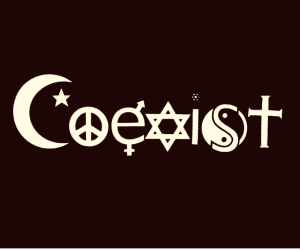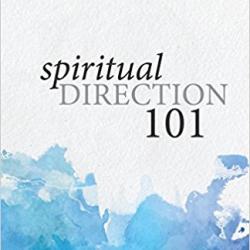 People who are spiritual but not religious seek spiritual directors who can be attentive to them without attempting to put them in an institutional box. While spiritual directors of all backgrounds are supposed to have this sort of openness, there is one religious tradition that has a history of not forcing seekers into a box: Unitarian Universalism (UU). That’s why when referring people who call themselves spiritual but not religious to spiritual directors, I many times steer them toward directors from the Unitarian Universalist tradition.
People who are spiritual but not religious seek spiritual directors who can be attentive to them without attempting to put them in an institutional box. While spiritual directors of all backgrounds are supposed to have this sort of openness, there is one religious tradition that has a history of not forcing seekers into a box: Unitarian Universalism (UU). That’s why when referring people who call themselves spiritual but not religious to spiritual directors, I many times steer them toward directors from the Unitarian Universalist tradition.
Unitarian Universalists are committed to “helping people lead lives of justice, love, learning, and hope.” While they hold to no creed or doctrine, Unitarian implies they are monotheistic (Divine oneness) and Universalist refers to the belief that all people — no exceptions — are acceptable to the Divine, with the divine interpreted in any number of ways. Atheists can find a home among UUs, alongside humanists and people from Jewish, Christian, Muslim, and pagan backgrounds.
Here are five reasons I believe Unitarian Universalist spiritual directors — especially the three I interviewed, whose thoughts you’ll find below — are good choices for the spiritual but not religious person.
UUs know how to talk about the spiritual life without overly theistic or “churchy” language.
Rev. Dr. Victoria Weinstein: UUs are very experienced with people who have been wounded by religious tradition and communities so — for better or worse — we become theologically multi-lingual. We know that the beginning of spiritual direction is listening, so we listen carefully for the language the directee is using. We are listening for the presence of the spirit. What are they groping toward? Also, what language hurts or triggers them? What are they rejecting? What is the language that has excluded them? We are comfortable with their stories of being hurt by religious people or institutions because of sexuality, being too curious, or too open.
Rev. Michelle Pederson: Because we in the UU tradition are so diverse in the first place, we’re more used to speaking across wide theological differences. I think that atheists might not feel they would be heard by a Christian spiritual director but would be heard and absolutely understood by us as we help them look at meaning in their lives (whether we use the word God or not). I like to ask: Where do you feel called by the universe?
UUs are accepting of many paths to the Divine
Rev. Todd Strickland: As Unitarian Universalists, we tend to come already deconstructed from the various religious homes in which we were born. So, when we encounter someone who calls themselves “Spiritual but not religious,” this is often a journey with which we have some familiarity, and it is not jarring to our spiritual grounding. The challenge for Unitarian Universalists is whether we have reconstructed a new philosophy or faith that grounds us enough to do the spirit work of holding space and being present.
Rev. Weinstein: I’ve known a lot of reverent atheists. I find it very easy to accompany a person regardless of their belief in God. They are having an experience of being alive and it’s doing something to them. I might call that sense of stirring awareness or yearning God. They might call it something else. Part of our process together is to find concepts and language that resonate for them.
UUs have statements of faith principles, but no creeds.
Rev. Pederson: UU congregations promote 7 principles of faith, but you don’t have to have a specific belief to be UU. The first principle is the inherent worth and dignity of the person (not some, all). We seek to treat people with respect. I didn’t grow up with any religion, so I began to explore faith as a teenager searching around. I found UUism at 30, and it spoke to me about how I relate to the universe.
UUs do not try to convert people — ever.
Rev. Pederson: There is no proselytizing in Unitarian Universalism. It is like the Alcoholics Anonymous principle of attraction rather than promotion. We try to be able to say what we believe without pushing it.
UUs are sex and body positive.
Rev. Weinstein: UUs are unique in that we have done work over the last 50 years integrating human sexuality with spirituality. I am comfortable with directees who are LGBTQ, part of the kink community, or asexual. Maybe they’re exploring. It is important to be able to bring one’s whole self to spiritual direction, and I think everyone deserves to work with a spiritual director who receives and celebrates all of who they are.
Rev. Pederson: There isn’t a debate about full personhood of LGBTQ people in UUism. Everyone is welcomed. And we’ve been doing a lot of work around body positivity and expanding how people see themselves. No one is going to fat shame you, either.
Of course, all trained spiritual directors are supposed to be welcoming to all spiritual paths, questions, life choices, beliefs, and traditions. If you feel judged by a director, find a new one. However, for people with a heightened sensitivity to how their story might be received, I am convinced that a trained and experienced Unitarian Universalist spiritual director would be an excellent choice for a lasting and meaningful connection.
If you would like to contact one of these UU spiritual directors, here is their contact information.
Rev. Dr. Victoria Weinstein, UU minister and spiritual director, Eastern MA
Rev. Michelle Pederson, UU community minister and spiritual director, Nashville, TN
Rev. Todd Strickland, UU clergy, chaplain, and SD












